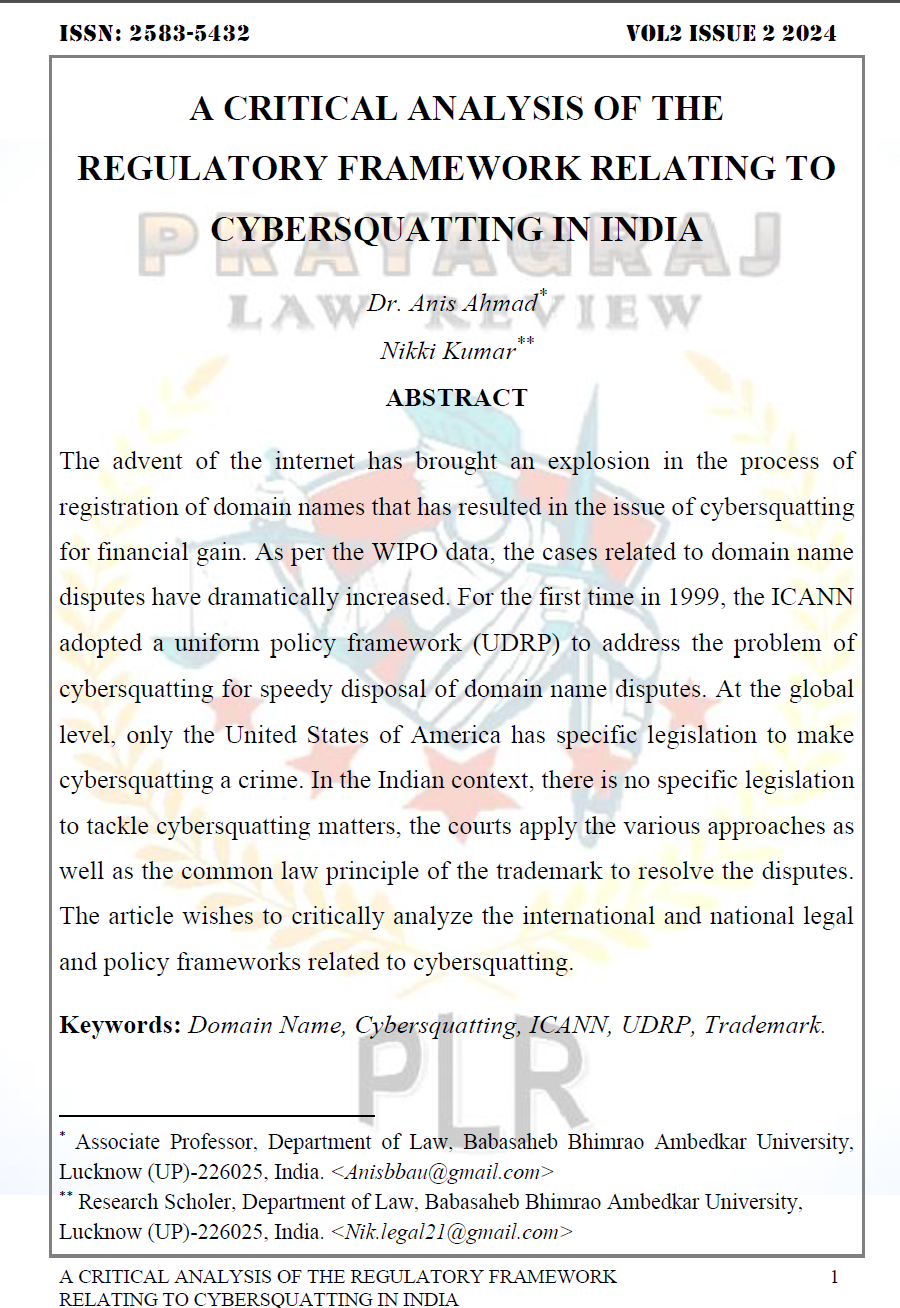A CRITICAL ANALYSIS OF THE REGULATORY FRAMEWORK RELATING TO CYBERSQUATTING IN INDIA
DOI:
https://doi.org/10.61120/plr.2024.v221-26Keywords:
Domain Name, Cybersquatting, ICANN, UDRP, TrademarkAbstract
The arrival of the internet has brought an explosion in the process of registration of domain names that has resulted in the issue of cybersquatting for financial gain. As per the WIPO data, the cases related to domain name disputes have dramatically increased. For the first time in 1999, the ICANN adopted a uniform policy framework (UDRP) to address the problem of cybersquatting for speedy disposal of domain name disputes. At the global level, only the United States of America has particular legislation that makes cybersquatting a crime. In the Indian context, there is no particular legislation to tackle cybersquatting matters, the courts apply the various approaches along with the common law principle of the trademark to resolve the disputes. The article wishes to critically analyze the international and national legal and policy frameworks related to cybersquatting

Downloads
Published
How to Cite
Issue
Section
License
Copyright (c) 2024 Prayagraj Law Review

This work is licensed under a Creative Commons Attribution-NonCommercial-ShareAlike 4.0 International License.
All works published in PLR are licensed under Creative Commons Attribution- Non-commercial- ShareAlike 4.0 License.
Under these terms,
You are free to:
- Share — copy and redistribute the material in any medium or format
- Adapt — remix, transform, and build upon the material
- The licensor cannot revoke these freedoms as long as you follow the license terms.
Under the following terms:
-
Attribution — You must give appropriate credit, provide a link to the license, and indicate if changes were made. You may do so in any reasonable manner, but not in any way that suggests the licensor endorses you or your use.
-
NonCommercial — You may not use the material for commercial purposes.
-
ShareAlike — If you remix, transform, or build upon the material, you must distribute your contributions under the same license as the original.
- No additional restrictions — You may not apply legal terms or technological measures that legally restrict others from doing anything the license permits.











